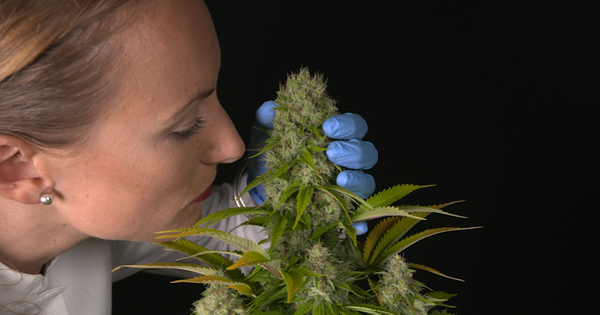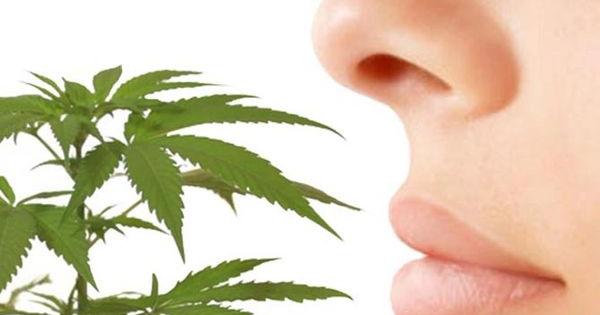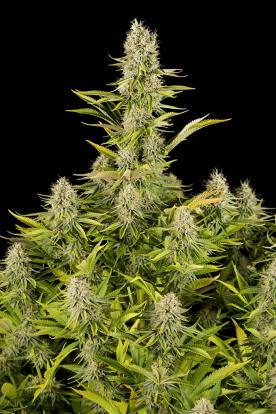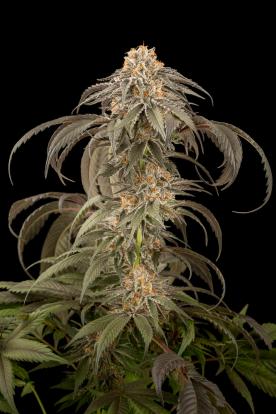- Terpenes are the compounds that give cannabis its aroma. Among these, one of the most abundant is limonene.
- Limonene provides numerous health benefits and can modify the effects of cannabis. Also found in other plants such as pine, mint and juniper, the terpene is commonly used in cosmetics.
- Read on to find out more about this interesting substance.

Limonene is one of the most abundant terpenes in the composition of cannabis. It is produced as a monoterpene in resin glands and, together with other terpenes, gives cannabis flowers their distinctive aromas. As the name suggests, it is also found in high concentrations in citrus fruits like lemon, and is commonly used for producing cosmetics, cleaners, medicines and foodstuffs, among other products. Here's its profile:
- Formula: C10H16
- Molecular mass: 136.23404 g/mol
- Boiling point: 176 °C (349 °F)
- Vapour pressure: 1.50 mmHg (25 °C)
- LD50 (Lethal dose): For the moment, there are no data available in humans. The dose for rats is 5.5 g/kg
What does limonene smell like?
The aroma of limonene is a citrusy scent that could be defined as sweet, bitter and sour. The terpene is found in high concentrations in fruits like orange and lemon, and serves as a defence mechanism against pests, which perceive the smell as being toxic.
What are the therapeutic benefits of limonene?
Cannabis has one of the most complex terpene profiles in the plant kingdom, which contributes to the plant's effectiveness as a therapeutic tool. The benefits terpenes bring to health have been widely studied and demonstrated, with limonene having shown potential as an:

- Antidepressant:Limonene has proven effective in elevating the mood. Some research in fact suggests the terpene is a natural antidepressant that helps restore homeostasis by blocking stress-induced immunosuppression. A study involving twelve clinically depressed patients found a link between endocrine and immunological disruption and certain mental disorders. In the same study, aromatherapy with limonene-rich citrus oils was found to increase endocrine hormone levels as well as to improve immune function.
- Antifungal: Limonene inhibits the growth of fungi, notably of species that attack food.
- Anti-inflammatory: According to research, limonene has anti-inflammatory properties and is effective in treating conditions including asthma and colitis.
- Anticancer agent:There is evidence to suggest limonene may have anticancer properties. Trials on rats found the terpene inhibits tissue growth in mammary tumours, while a further trial on humans showed limonene to be effective in reducing breast cancer tumour growth in some patients. Meanwhile, another study found that a 2-6 treatment with limonene inhibits a protein that promotes tumour growth, suggesting that daily limonene consumption could prevent the growth and spread of breast tumour. Additional studies suggest limonene may lead to apoptosis – cell death or destruction – of cancer cells in lung and brain tumours.
- Anxiolytic:Several studies point to the anti-anxiety and anti-stress effect of limonene.
- Immune system stimulator:Limonene has been found to regulate and boost immune function.
Limonene has an extremely high safety profile and has proved non-toxic to humans. Research from the UK suggests however that it could lead to allergic reactions.
The effect of limonene on cannabis
While most people know cannabinoids, THC in particular, are what give cannabis its effect and terpenes what creates its aroma, fewer are aware that the latter may also modify the effect. In isolation, limonene is invigorating, mood-lifting and stress reducing. This is why limonene-rich strains, whose effect can be defined as sativa, are often recommended for people with depression. But since cannabinoids and other terpenes are also an important part of the equation, not all limonene-rich strains produce a sativa effect. Such is the case of some Kush genetics, which exhibit high levels of limonene but also myrcene, resulting in a less euphoric effect. Also, caution needs to be exercised when recommending cannabis as a treatment option for depression, since the plant contains many other elements that could prove counterproductive in addressing the disease. Accordingly, it is important to consider aspects like the dose – quantity and frequency – before starting a treatment with cannabis.
What strains contain limonene?
Second only to myrcene, limonene is the most abundant terpene in cannabis, and while there is a tendency to assume that the strains that smell like lemon are the richest in limonene, this isn't always the case. In fact, the only way to really tell if a given strain is limonene-packed is a lab test. This is why all Dinafem strain are subjected to analysis before they are marketed.
Knowing the exact composition of a specific strains allows to better predict the effect it will have on the body.
Here are two great Dinagirls for those of you looking for limonene-rich strains:
Amnesia Kush: This strain is the result of combining two of the most iconic meccas in the cannabis world: Holland and California; the flavour and hardiness of OG Kush and the sativa potency of Amnesia Haze. Her Kush parentage makes her rich in limonene and her THC levels of 20 percent of more make her incredibly potent. Vigorous and easy to grow, she adapts well to humid climates thanks to her sativa dominance.
Purple Afghan Kush: We consider Purple Afghan Kush one of the most beautiful and mysterious strains in our catalogue, so imagine our surprise when we found out that her tropical pineapple fragrance hid limonene. This strain is the perfect example of a limonene-rich strain that, as mentioned above, does not produce a sativa effect. High in THC, Purple Afghan Kush could instead be defined as a soothing strain that soothes the muscles and gives the body and mind full relaxation without couch lock.
- Effects of citrus fragrance on immune function and depressive states. Komori T1, Fujiwara R, Tanida M, Nomura J, Yokoyama MM.
- Anti‐inflammatory Effects of Limonene from Yuzu (Citrus junos Tanaka) Essential Oil on Eosinophils. Ryoji Hirota Ngatu Nlandu Roger Hiroyuki Nakamura Hee‐Sun Song … See all authors First published: 05 April 2010 https://doi.org/10.1111/j.1750-3841.2010.01541.x
- Limonene-induced Regression of Mammary Carcinomas1 Jill D. Haag, Mary J. Lindstrom, and Michael N. Gould2 Departments of/fuman Oncology ¡J.D. H., M. N. fi.I and Biostatistics ¡M.J. L.¡,University of Wisconsin-Madison, Madison, H'isconsin 53792
- Phase I and pharmacokinetic study of d-limonene in patients with advanced cancer David M. Vigushin, Grace K. Poon, Alan Boddy, Jacqueline English, Gavin W. Halbert, Christos Pagonis, Michael Jarman, R. Charles Coombes. Cancer Research Campaign Phase I/II Clinical Trials Committee
- d-limonene exhibits antitumor activity by inducing autophagy and apoptosis in lung cancer Xiao Yu,#1,* Hongyan Lin,#1,* Yu Wang,1 Wenwen Lv,1 Shuo Zhang,1 Ying Qian,1 Xiaobei Deng,1 Nannan Feng,1Herbert Yu,2 and Biyun Qian1
- Potential antioxidant and anxiolytic effects of (+)-limonene epoxide in mice after marble-burying test. de Almeida AA1, de Carvalho RB2, Silva OA3, de Sousa DP4, de Freitas RM2.







Comments from our readers
There are no comments yet. Would you like to be the first?
Leave a comment!Did you like this post?
Your opinion about our seeds is very important to us and can help other users a lot (your email address won't be made public).